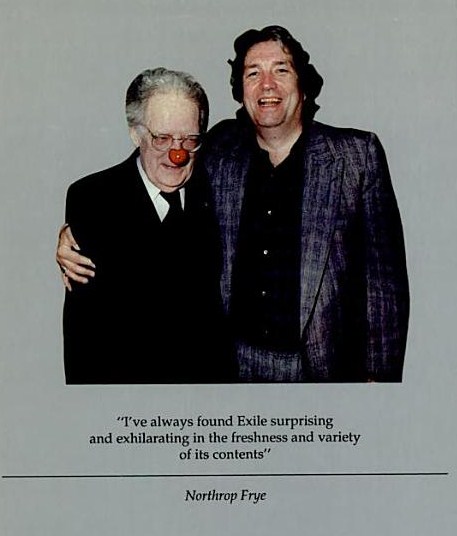http://www.youtube.com/watch?v=3-GEAgSFwyE
It’s Frye’s birthday week, and posting a movie he’d seen and enjoyed is a good way to go.
Although I want to say this first. There is almost no video and audio of Frye available online. The CBC is sitting on a treasure trove of interviews and features. A few months ago, TVO posted a link to a Frye interview from the 1970s-era “Education of Mike McManus,” but the link was dead. I wrote TVO about it, was promised the link would be fixed, and then it disappeared altogether.
Now that the centenary is on the way, people should weigh in and convince these public institutions to make this material available. There’s stuff everywhere on Marshall McLuhan (whose centenary is on 21st), including YouTube. There is potentially a lot of audio and video of Frye that could be had from many sources. We should be able to access it.
Now this movie, Whisky Galore!, is a classic from Ealing Studios, which made smart little British comedies during the 1950s. Frye saw it under the title, Tight Little Island, which was the name attached to it for North American release. Frye records seeing it and makes an extended comment on it in his 1950 diary, a time we now know the work that eventually became Anatomy of Criticism was gestating. It really shows in this comment:
The show itself was pleasant: “Tight Little Island,” about a small Hebridean community & how it dealt with a wreck bearing fifty thousand cases of whisky. An immemorial theme, but pleasantly handled. As I was looking for comic archetypes, I noted that the Saturnalia is an upsetting of an existing social order which recalls a Golden Age before that order was established, & which is therefore the Saturnalia’s grandfather, so to speak. Hence the existing social order is a kind of deputy rule, a viceregent custom, like the rule of Angelo in MM [Measure for Measure]. In this movie the only antagonist, a Malvolio churl, was captain of the home guard, & tried, like Malvolio, to act like a steward locking up the drinks. One of the most unsympathetic people was his own colonel. This, of course, was as corny as Plautus himself really: the drunks weren’t slaves, but they were poor people, & there was a restive agin-the-government tone to the whole picture. (CW 8, 312-13)



